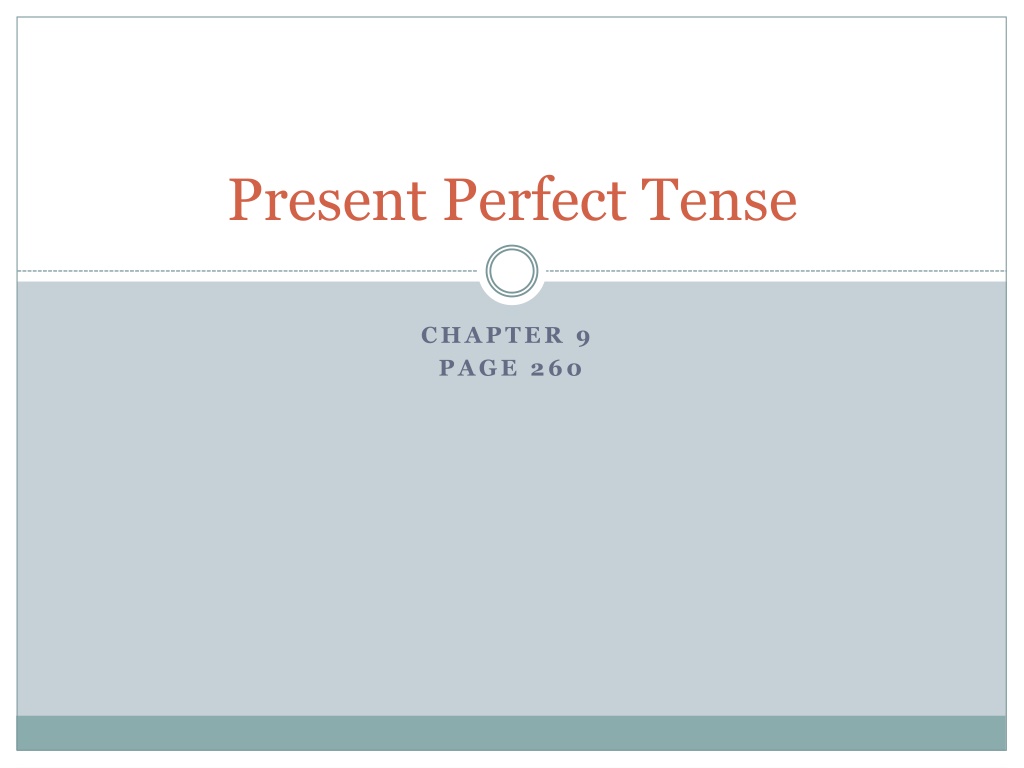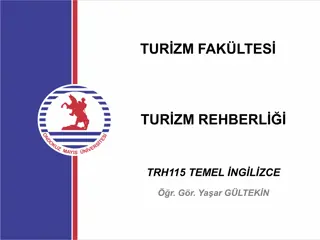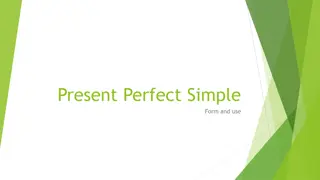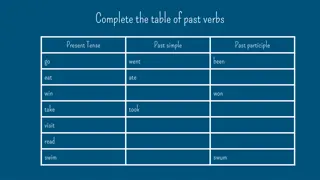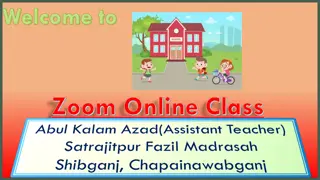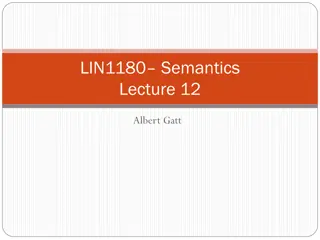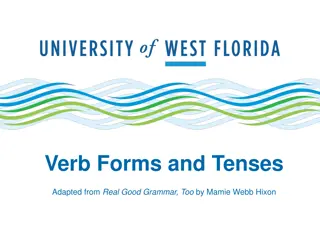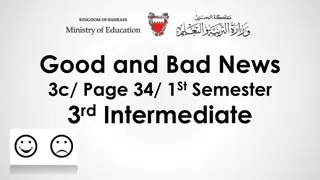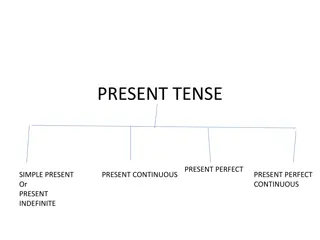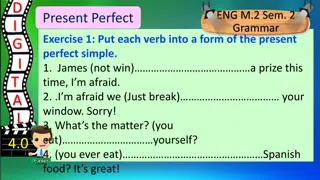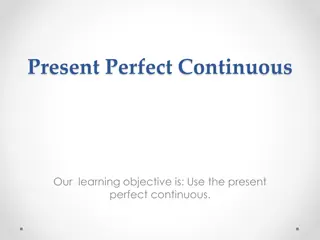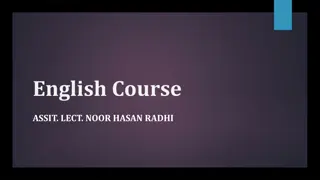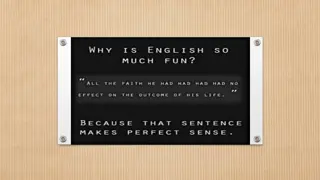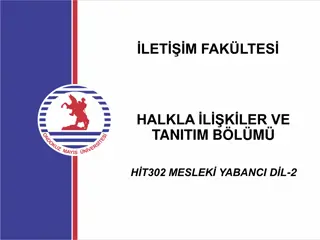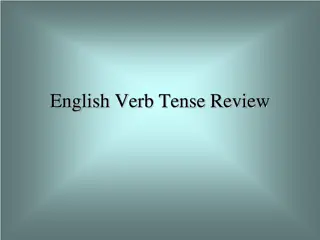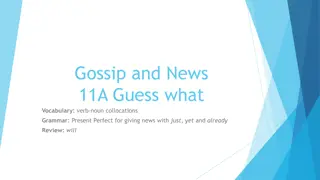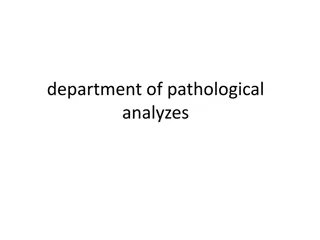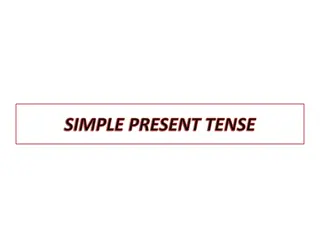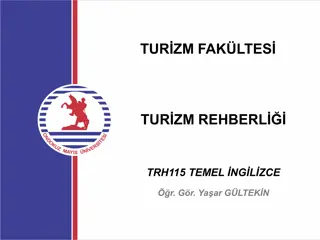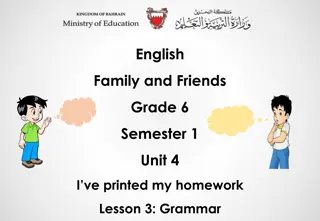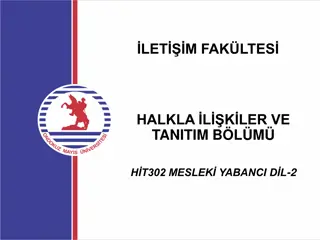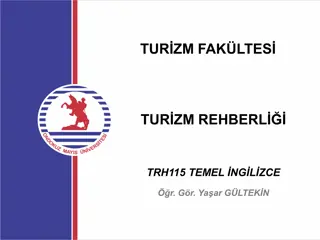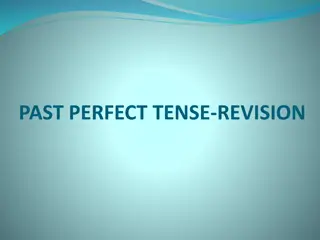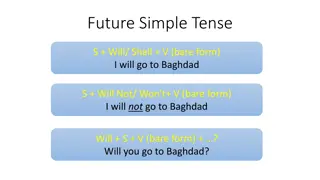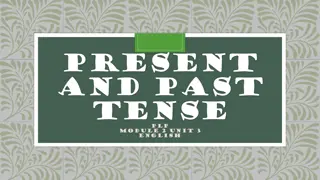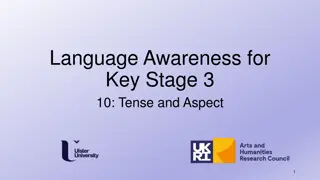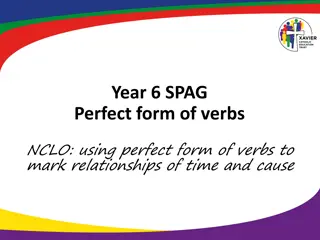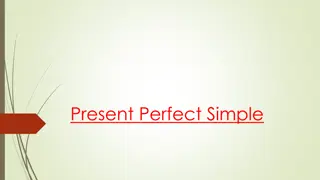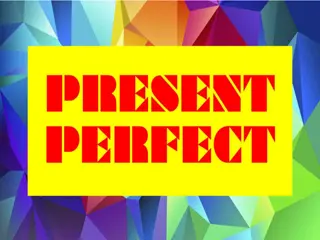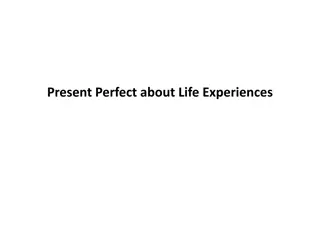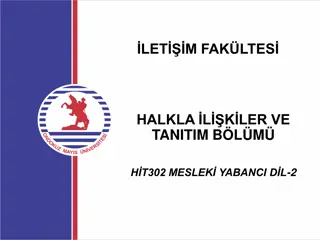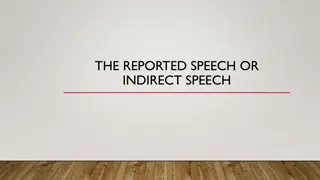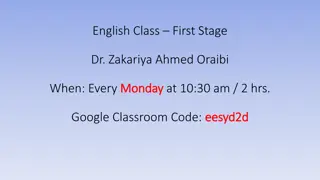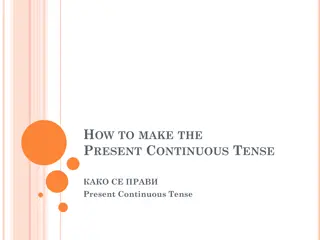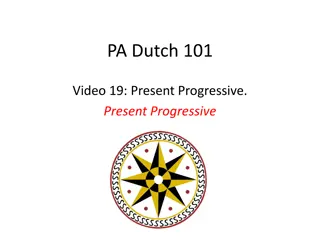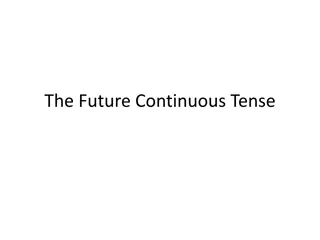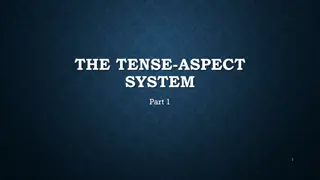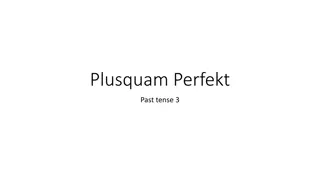Understanding the Present Perfect Tense - Chapter 9
The present perfect tense is used for actions or situations that occurred at an unspecified time in the past, repeated actions at unspecified times, ongoing actions from the past to the present, and more. Time expressions like "for" and "since" are essential in specifying durations and starting points. This tense is versatile and helps convey a variety of past to present connections.
Download Presentation

Please find below an Image/Link to download the presentation.
The content on the website is provided AS IS for your information and personal use only. It may not be sold, licensed, or shared on other websites without obtaining consent from the author. Download presentation by click this link. If you encounter any issues during the download, it is possible that the publisher has removed the file from their server.
E N D
Presentation Transcript
Present Perfect Tense CHAPTER 9 PAGE 260
Uses 1. Actions or situations that happened at an unspecified time in the past: I have been to Canada. 2. Repeated actions ay unspecified times in the past. I have seen this building twice.
3. Actions or situations that began in the past and continue to the present. We have been here since January. Rose has played tennis for a long time. I have not seen them since last week. She hasn t missed a single class.
Time expressions with present perfect For: use it with an amount of time. Examples: for an hour, for a week, for 5 years, for a long time. I have played soccer for five years.
Since: use it with a time or point in the past time. The phrase tells when an activity or a condition started. Examples: since 7:00, since Monday, since April 15th, since my birthday. My best friends have been married since January.
All: use it for a complete time period. Examples: all day, all night, all week, all my life. Maya has been at her friend s house all week.
Always: use it for an action or a state that began in the past and continues to the present. We have always wanted to go skydiving. Always comes after have/has and the main verb.
